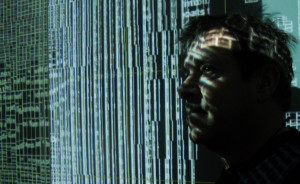 From his childhood, Roland Kuit has always been fascinated by the phenomenon of sound. Surrounded with instruments like a grand piano, violins, double bass, trombone and guitars, he started to experiment with these sounds and the tape recorder. He was 6 years old at that time. This early playground formed a conceptual brain scheme for the rest of his life: sound-experiment, experiment-sound.
From his childhood, Roland Kuit has always been fascinated by the phenomenon of sound. Surrounded with instruments like a grand piano, violins, double bass, trombone and guitars, he started to experiment with these sounds and the tape recorder. He was 6 years old at that time. This early playground formed a conceptual brain scheme for the rest of his life: sound-experiment, experiment-sound.
At an early age he started to play the flute and was accepted at the Royal Conservatory in The Hague, continuing his sound research in extended flute techniques. Here he met the music of Karlheinz Stockhausen, Luigi Nono, Berio, Dick Raaijmakers and other composers in electronic music. Experiencing limitations in acoustic music, Roland bought his first synthesizer: the ARP 2600.
At that moment Roland made a decisive step in his career by enrolling in the prestigious Institute of Sonology in the Netherlands, one of longest-running research and production hubs on the European electroacoustic music scene. It was at the end of formalism, serial music and new ways in sound creation and composition had to be explored. Under the influence of director Gottfried Michael Koenig this post-formal framework was opened for experiment. Roland studied analogue and digital sound science: synthesis and studio techniques along with composition. Next, private lessons at Dick Raaijmakers home studio Trompstraat, The Hague.
At IRCAM in Paris, Roland experienced new techniques of acoustic composition and research on physical modeling in spectral music. Earlier he had created a virtual string quartet with use of analogue synthesis. Analogue synthesized sounds have something alive in the sound due to behaviour of the apparatus. Sounds created by digital means seemed to him to be static, so Roland used his knowledge to apply his techniques in the digital realm. His morphing between different techniques and shaping of algorithms became Roland’s signature.
His output spans composition through sound art, sound-architectural installations, collaboration with experimental artists, designers and scientists, acousmatic performance and live electroacoustic improvisation.
Research, imagination and technical association motivated him to write his books about combining synthesis techniques. Lecturing at diverse universities and creating radio programs about electronic music give him a platform to discuss his conceptual worlds.
He performs on concert stages and in art galleries and museums. His books and music are published by Donemus, Publishing House of Dutch Contemporary Classical Music. Roland Kuit’s music is on board on NASA’s OSIRIS-REx mission reaching the asteroid 101955 Bennu in 2018.
You can read more about Roland at his website.